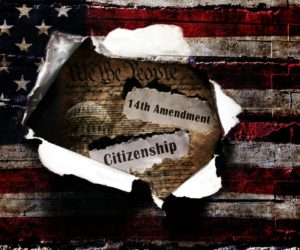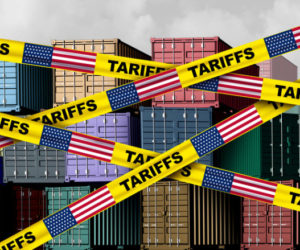The U. S. Supreme Court ruled 6-3 today that anti-terrorism laws are constitutional even when they have an adverse impact on free speech. Justice John Paul Stevens joined the conservative majority, while Justices Breyer, Ginsberg, and Sotomayor dissented from Chief Justice Roberts’ opinion. Holder v. Humanitarian Law Project. Opinion here.
At issue was 18 US Code 2339B(a)(1) which makes it a federal crime to knowingly provide material support or resources to a terrorist organization. Plaintiff, Humanitarian Law Project (HLP), sought a declaratory judgment that the law was unconstitutional as applied to its proposed activities. HLP supported the nonviolent activities of two separatist groups, Partiya Karkeran Kurdistan (PKK) and Liberation Tigers of Tamil Eelam (LTTE). PKK is a separatist groups of Turkish Kurds and LTTE seeks an independent state for Tamils in Sri Lanka. Both groups engage in political and humanitarian activities as well as having engaged in terrorist attacks.
HLP wanted to provide support for activities for the two organizations including training the groups in how to use international law to resolve disputes, how to petition the United Nations and other international agencies for relief and engaging in political advocacy on behalf of Turkish Kurds and Sri Lankan Tamils. The definition of material support and resource in the law forbids, among other things, providing training, expert advice or assistance, services or personnel to terrorist groups.
The government, through the Attorney General’s office, argued that the law did not impact speech, but was aimed only at conduct. The Supreme Court rejected that argument, acknowledging that expert training and advice included speech, as did political advocacy. In spite of that finding, the Court ruled in the government’s favor.
On the issue of political advocacy, the Court noted that HLP could engage in political advocacy so long as it did not do so through, or in coordination with, the terrorist groups. The reasoning on training and expert advice for non-terrorist activities was a bit more complex.
After determining that the law was not unconstitutionally vague, the Court took up the First Amendment free speech issue. All parties agreed that combating terrorism was an urgent objective of the government. The question boiled down to supporting terrorist activities as opposed to supporting humanitarian and political activities. The Court found that groups like PKK and LTTE do not sufficiently segregate terrorist activities from humanitarian and political activities to effectively draw a line between them.
Noting that the Court lacks expertise in matters of national security and foreign affairs, it deferred to the other branches of government for factual determinations on those matters. It found that
“the taint of [such groups’] violent activities is so great that working in coordination with them or at their command legitimizes and furthers their terrorist means. “
It also found that material support intended for peaceful and lawful purposes could be diverted by such groups for terrorist purposes, and that
“Providing material support in any form would also undermine cooperative international efforts to prevent terrorism and strain the United States’ relationships with its allies, including those that are defending themselves against violent insurgencies waged by foreign terrorist groups.”
As to the specific types of assistance proffered by HLP, the Court found,
“As to the particular speech plaintiffs propose to undertake, it is wholly foreseeable that directly training the PKK on how to use international law to resolve disputes would provide that group with information and techniques that it could use as part of a broader strategy to promote terrorism, and to threaten, manipulate, and disrupt. Teaching the PKK to petition international bodies for relief also could help the PKK obtain funding it would redirect to its violent activities.”
Based on this rationale, the Court determined that First Amendment free speech was not violated by the law’s prohibition of HLP’s proposed activities. This was a Declaratory Judgment action, and, as a result, dealt with proposed activities, not an actual criminal prosecution. The Supreme Court left open the possibility of attacking actual future enforcement on First Amendment grounds, but set a standard that will make such attacks virtually impossible.
Cross posted at Elijah’s Sweete Spot.
Contributor, aka tidbits. Retired attorney in complex litigation, death penalty defense and constitutional law. Former Nat’l Board Chair: Alzheimer’s Association. Served on multiple political campaigns, including two for U.S. Senator Mark O. Hatfield (R-OR). Contributing author to three legal books and multiple legal publications.
















